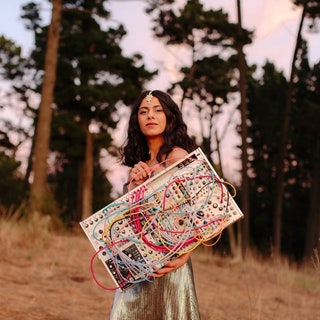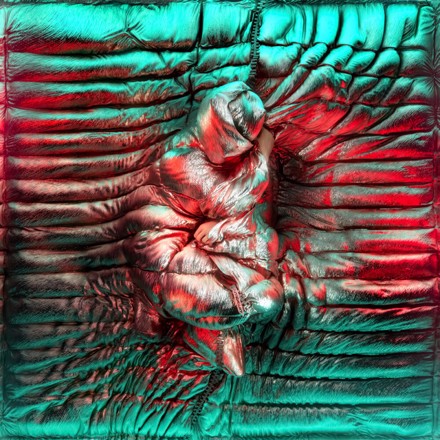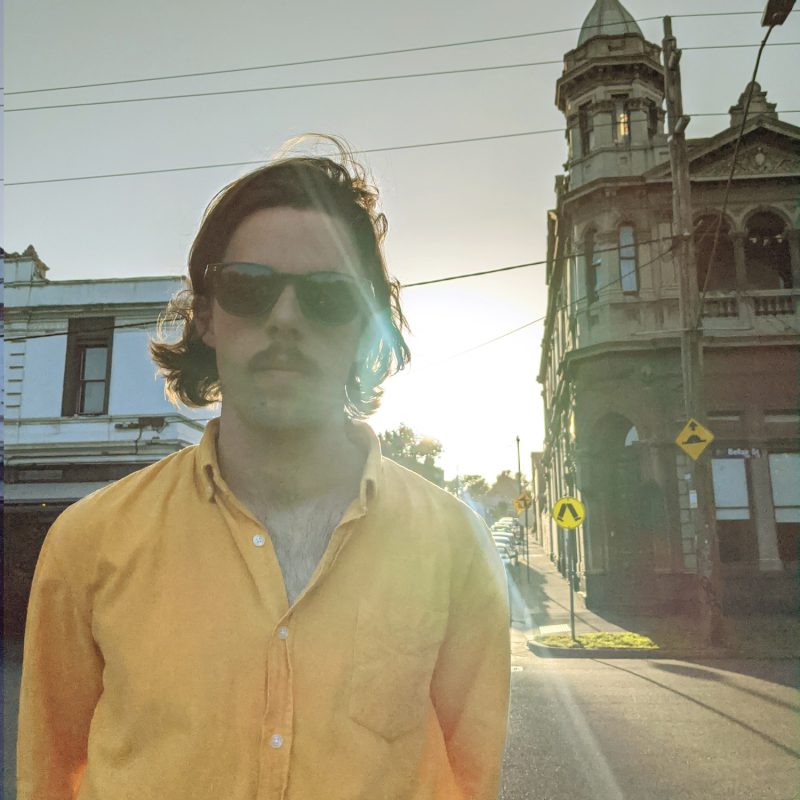Arushi Jain aims for nirvana on the stunning debut album, ‘Under the Lilac Sky’
Image by Ishita Singh
Identity politics in electronic music have always been a bit skewed. What began as a form of black queer expression evolved into the mainstream archetype of the cis-gender white male playing music for his ilk at the likes of Ultra and Tomorrowland. More often than not this archetype becomes the standard. The culture around electronic music becomes informed by this to the point of misrepresenting or altogether erasing the pioneers of the form who do not conform to this ideal. South Asian artists in electronic music are one such group.
The music traditions of India are not usually thought of as seminal to electronic music, rather having informed the conventions of rock and hip-hop more distinctly. Even then, most iterations of Indian traditional music in the Western canon are the work of Western artists applying these motifs towards aesthetic (see: psychedelic) effect rather than evolving the form itself. Sure, there’s psytrance. But even then, the style that found its pulse in the beat of the beaches of Goa has mostly come to be shaped by Western appropriation. Perhaps reactionary to this, many of India’s native and diasporic musicians have distanced themselves from the sounds of their culture, looking to the West as the blueprint for form and style. India’s own appropriation of Western EDM in Bollywood pop does little to help this case. This is why when artists of Indian or Indian diasporic heritage arrive vehemently embracing the sounds and aesthetics of their culture, it feels distinctly progressive. M.I.A comes immediately to mind, but recently a new wave of artists have begun to find their sound in their heritage. California based Indian composer Arushi Jain is one such artist and her stunning debut released by Leaving Records, Under the Lilac Sky, is as much a reclamation of identity as it is a modern love letter to Indian classical music.
Jain’s theory is simple: she plays traditional Indian ragas by way of her weapon of choice, the modular synthesiser. A raga, in Indian classical terms, is a melodic framework of pitches and modulations that inform a phrase of musical improvisation. It’s easy to see how this translates well into synthesiser instrumentation, and Jain’s execution of the theory is inspired. It’s clear that her artistry is foremost informed by an intensive knowledge of Indian classical, and this scholarly approach results in music that is a quietly sophisticated amalgamation of her dual heritage. The shrill reverberation of a harmonium can be felt on the buzzing synths that open The Sun Swirls Within You, which quickly scatter into twinkling chords that interpolate what would be a sitar. The re-contextualisation of these historical instruments by way of modern electronic music is triumphant; a manifesto of Jain’s artistry that is absolutely clear in its intent.
To call this ambient wouldn’t be quite right; structurally and melodically, the music on Under the Lilac Sky is unequivocally Indian classical. Jain pulls mostly from the quiet solitude of devotional mantras and bhajans, songs sung in praise of the gods. Tracks like Richer Than Blood and My People Have Deep Roots are driven by the soft spirituality of a chanted vocalisation, a resonant core around which Jain’s modular flourishes flutter and bloom towards Nirvana. For those familiar with the intonations and warm, meditative sounds of bhajans and poojas, Under The Lilac Sky is an alarmingly emotional experience. To hear the familiar vibration of sounds that are so inherently ingrained into one’s cultural fibre in contemporary form is the sort of visibility not often afforded to diasporic identity. My People Have Deep Roots is emblematic of this, a deeply moving exploration into the complexities of what it means to be two things at once.
It’s interesting that the etymology of ‘raga‘ should come from the Sanskrit word for colour. For Jain, colour becomes a sort of thematic modality. Ragas are traditionally composed in relation to the time of day they should be played at, and Jain’s ragas follow this tradition by reflecting the shifting colours of the sky from sunrise to sunset. Vibrant and thrumming with the energy of the times that inform them, Jain’s compositions are entirely chromatic. They conjure kaleidoscopic experiences that are perhaps best described as synaesthetic. The title track is an ode to dusk, and the shades of purple, orange and pink soak through Jain’s melodic choices. Look How Far We Have Come ebbs with an oceanic aura of blue and turquoise, in part a memory of the waters that carried India’s culture and people to new shores but also an ode to the impossible blue of the late afternoon sky. The translation of tradition into contemporary form recalls the evolution of Indian cultural identity in the face of globalisation. By interpreting the antique by way of modernity, Jain’s work comments on the rapid urbanisation of India itself. The infiltration of Western technology has massively shifted the landscape of cosmopolitan India, and Under The Lilac Sky feels like both a product of and a rumination upon this transmutation.
Cultivating Self Love rests as the album’s penultimate track but also its statement of intent. An undulating phrase of techno stabs revolves around a melody that for the album’s first half, had been carried by a voice but here is carried entirely by Jain’s electronics. Closing the album with the pastel spectrum of Under the Lilac Sky, Jain’s journey is clear; to find her way back to the root of who she is. Diasporic identity is confusing; an iconoclastic experience of dual heritage that makes it difficult to find a place of belonging. Under the Lilac Sky is Jain’s breathtaking path towards belonging; the reconciliation of past and present, of a self that is neither here but not entirely there.
Download Under the Lilac Sky here, and listen to the opening track Richer than Blood below.
Follow Arushi Jain
Facebook | Twitter | Instagram | SoundCloud



